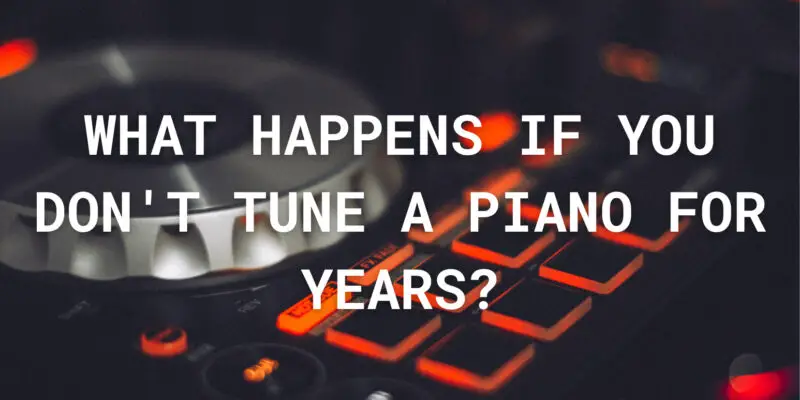Pianos, with their elegant and timeless presence, are not just musical instruments; they are also works of art that require care and attention. One critical aspect of piano maintenance is regular tuning. However, many pianos, especially those in homes where they are not played professionally, can go untuned for years. In this article, we will explore the consequences of neglecting to tune a piano for an extended period.
1. Pitch Drifts Sharply
One of the most noticeable consequences of not tuning a piano for years is a significant shift in pitch. The strings in a piano are under tension, and over time, they naturally lose tension, causing the pitch to drop. Neglecting regular tuning can lead to a piano that sounds distinctly out of tune and unpleasant to the ear.
2. Uneven Tuning
In addition to a general drop in pitch, the individual strings of a piano may lose tension at different rates. This can result in uneven tuning, where certain notes or octaves are more out of tune than others. Playing such a piano can be frustrating and dissonant.
3. Increased Risk of Damage
Pianos are intricate and finely-tuned instruments. When not regularly tuned, the strings and other components can undergo stress and fatigue. This can lead to structural problems, including broken strings, cracks in the soundboard, and loose tuning pins. Repairing these issues can be costly and complex.
4. Decreased Playability
A piano that has not been tuned for years can become less responsive and challenging to play. The unevenness in tuning can result in keys that feel different from one another, affecting a pianist’s ability to create music with precision and expression.
5. Loss of Tone Quality
The tone quality of a piano is one of its most cherished attributes. Neglected pianos may lose the rich and resonant tonal quality that makes them appealing. Instead, they may sound dull, lifeless, and lacking in the depth and character that pianos are known for.
6. Reduced Lifespan
Regular tuning and maintenance are crucial to extending the lifespan of a piano. Neglecting these essential tasks can lead to the premature deterioration of the instrument. Pianos that are left untuned for years may require extensive and costly repairs to bring them back to optimal condition.
7. Frustration for Musicians
For musicians, playing an untuned piano can be a frustrating and demotivating experience. It can hinder their practice sessions and impede their progress, leading to a lack of motivation to play.
Conclusion: The Importance of Regular Tuning
In conclusion, neglecting to tune a piano for years can result in a multitude of consequences, including pitch drift, uneven tuning, increased risk of damage, decreased playability, loss of tone quality, reduced lifespan, and frustration for musicians. To maintain the beauty and functionality of a piano, it is essential to schedule regular tunings by a qualified piano technician. Even if the piano is not played regularly, periodic tunings can help preserve its value, prevent damage, and ensure that it continues to produce the harmonious and enchanting sounds that make it a beloved musical instrument.

